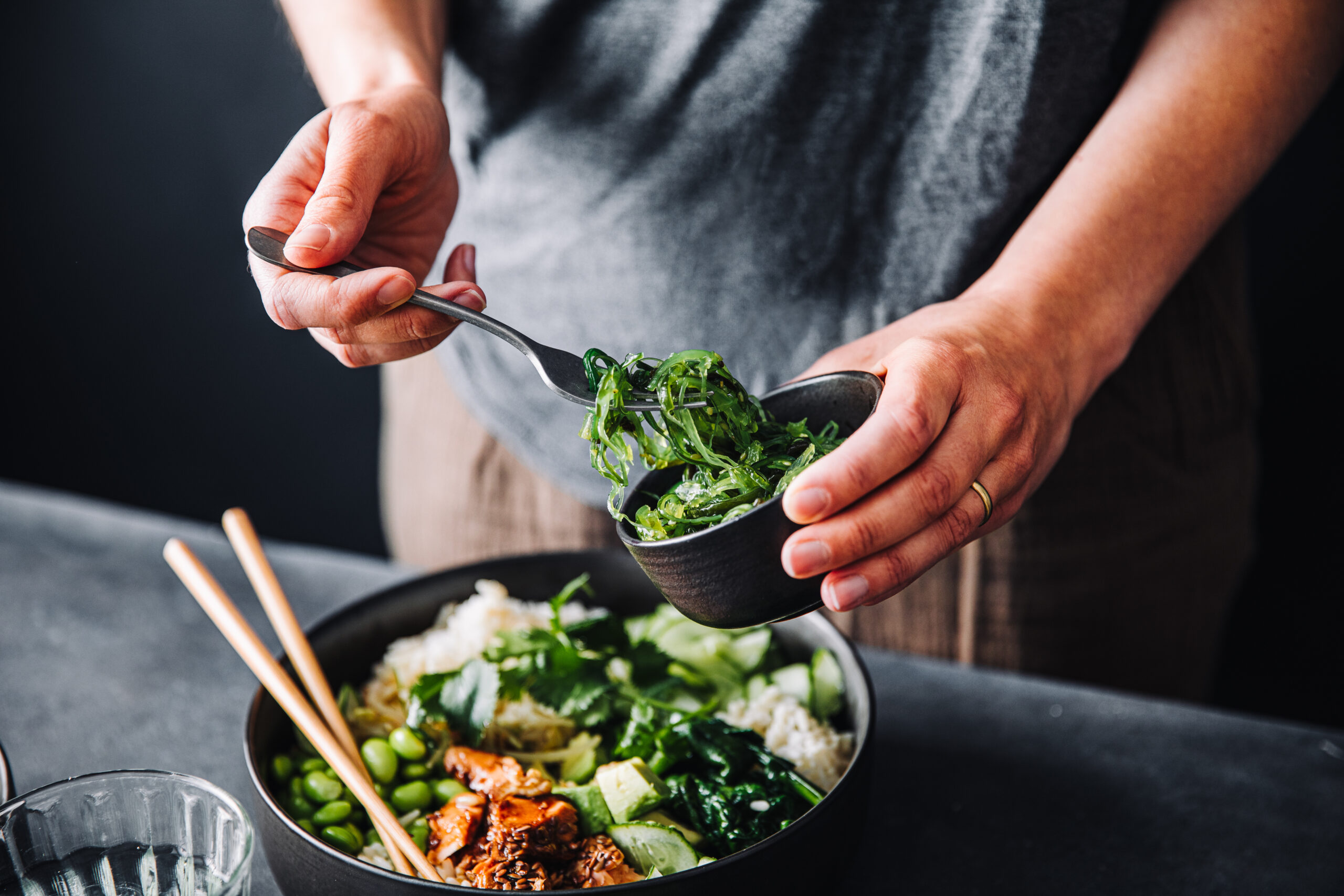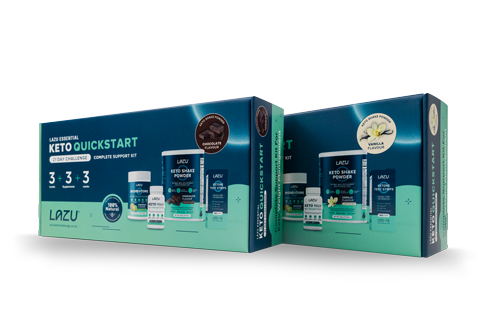
Who hasn’t heard of the keto diet? This popular weight loss diet relies on metabolic adaptation to help you lose weight.
When consuming a low-carb, moderate-protein, and high-fat diet, the body needs to find a new energy source instead of glucose. As a result, it digs into the fat reserves to create ketones, the new currency of energy.
Now, most people understand the benefits of keto. They know that you can lose weight, improve bloodwork, reduce cravings, and boost energy levels.
However, what most people don’t know before starting keto is its possible side effects, with the most common side effect being the keto flu. This is when you might get flu-like symptoms such as headaches, nausea, foggy brain, and fatigue.
Another common side effect of the keto diet is poor digestion and constipation. Due to the restriction of carbs (the primary source of fiber), most people start having issues with bowel movements.
The purpose of this article is to understand the relationship between keto and constipation. Why boosting the fiber intake while doing keto is essential, and how you can easily add it without getting digestive issues (such as bloating and gas) and without affecting your total carb intake.
The Reduction of Dietary Fiber Intake During Ketosis
When transitioning to a ketogenic diet, many individuals inadvertently reduce their intake of fiber-rich foods like whole grains, fruits, and legumes. This is primarily due to the focus on low-carb, high-fat foods that are the cornerstone of the ketogenic approach.
Unfortunately, this can lead to constipation, bloating, and irregular bowel movements, as fiber plays a crucial role in maintaining a healthy digestive system.
The Importance of Fiber for Digestive Health and Overall Wellbeing on a Ketogenic Diet
Fiber is the unsung hero of digestive health. It aids in the proper functioning of the gastrointestinal tract, promoting regular bowel movements and preventing constipation.
Furthermore, fiber acts as a broom since it helps sweep unwanted molecules such as cholesterol and glucose. As a result, it can help regulate blood sugar levels and promote good heart health.
Additionally, since fiber takes longer to digest, it can increase fullness levels and reduce cravings, which makes it easier to stay in any caloric deficit (eating fewer calories than the body needs).
So, as you can see, fiber plays a crucial role in overall health. The average recommendation for a healthy digestive system is 25 to 30 grams of fiber daily. However, as mentioned, most high-fiber foods are high in carbs.
For example, one cup of blueberries has 4 grams of fiber, half a cup of beans has 9 grams of fiber, and one medium apple has 4 grams of fiber.
With that said, how can you increase your fiber intake on keto without affecting your total carb intake?
Tips For Increasing Fiber Content On Keto
There are some great fiber sources you can include that won’t affect your ketosis state. Here is a list of those foods you should consider adding to help improve digestion and promote good bowel movements.
- Avocados
- Chia seeds
- Pecans
- Almonds
- Flaxseeds
- Pumpkin seeds
- Edamame
- Coconut
- Raspberries
Non-starchy vegetables, such as broccoli, cauliflower, zucchini, mushrooms, carrots, and leafy greens (to name a few), are also high in fiber and low in carbs. So, make sure you are getting a good amount of greens in your keto diet. Besides adding fiber, they also provide antioxidants to help reduce inflammation and essential nutrients to reduce nutrient deficiency.
Now, keep in mind that for fiber to function properly, you need to have a good water intake. Without proper hydration, instead of improving constipation, it might actually worsen it. If you don’t know how much water you need, divide your body weight in pounds by half to get the total ounces of water you need as a minimum per day.
There might be times when high-fiber foods might not be enough. In this case, a fiber supplement can help improve digestion without affecting your results. However, there are thousands of supplements available on the market. How can you select the best?
No worries, we’ve got you covered!
BioRestore: A Solution to Insufficient Fiber on a Ketogenic Diet
To address the challenge of insufficient fiber intake on a ketogenic diet, we’ve developed a specially formulated fiber supplement. This supplement is designed to complement your low-carb lifestyle, providing you with the fiber your body needs without compromising your ketosis state.
Each serving (9 grams) contains 3 grams of fiber which means it gives you more than 10% of the daily fiber recommendation. In addition, besides supplying fiber, the supplement also contains probiotics, which can help improve gut health and digestion.
Finally, the BioRestore also contains essential electrolytes. They can play a crucial role in decreasing the risk of the keto flu.
So, as you can see, we’ve developed a very complete keto formula that won’t mess up your ketosis and might help you reduce common side effects from the keto diet, such as constipation, poor gut health, and the keto flu.
The Bottom Line
Maintaining adequate fiber intake is essential for a healthy digestive system and overall well-being, even when following a ketogenic diet. By understanding the causes and effects of reduced fiber intake during ketosis, you can ensure that your digestive health remains in top shape while successfully achieving your health and fitness goals. Remember, a well-rounded approach to nutrition is the key to a sustainable and successful ketogenic journey.
While there are several ways to help increase the fiber content while on keto, one of the best ways is to include non-starchy vegetables along with a fiber supplement such as BioRestore. Always along with a good water intake.
